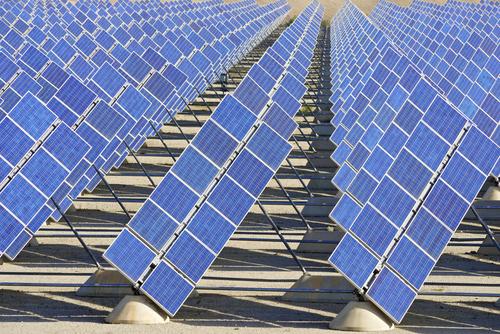Solar energy, with tens of billions of dollars in subsidies to keep it afloat, now employs more people than the fossil fuel alternative it is irrationally pitted against in media - coal. (1)
Obviously that employment would collapse if the government-mandated financial cushion dries up, just like ethanol or wind, and the new administration is looking at money as money, not as ideology. When it comes to money as money, coal generates it while solar is a big drain. But not everyone thinks of money as money, academia is the home of people who believe wacky things like that NIH earns twice as much as it costs, while California activists claim so much in profit from regulations I recommended they manage the US Treasury - because they could cure the national deficit in just two months by adding more regulations if their claims involved real money. Some academics have taken to using virtual lives, and therefore virtual savings, to make solar look more politically attractive but the methodology clearly fails Economics 101.
If the public is going to make informed decisions about health and science policy, we have to look at real numbers, and how they were derived. This is not only important for the present, but for the future. I have long maintained that solar is the future - but that subsidizing solar panel corporations rather than funding basic research with tax dollars is a huge mistake. Poor people being forced to pay higher conventional utility rates so residents of Malibu can get rebates on solar panels and their electricity is a travesty.
Yet that is a political issue, and therefore debatable as opinion. What can be debatable as fact is when academics try to legitimize their political beliefs using hard numbers. For example, a new paper claims 51,999 premature deaths a year are caused each year in America from air pollution-related diseases associated with burning coal, and that the health care system could save as much as $2.5 million for each life saved. They say they did this by comparing US deaths per kilowatt hour per year for both coal and solar.
There is one big problem; there are zero air pollution-related diseases associated with burning coal in the United States, they instead take as fact the hand-picked epidemiology studies that EPA used in order to rationalize the Obama administrations desire to make its enormous subsidies for solar look good - by making fossil fuels too expensive. The authors of the new paper didn't really look at any of the primary literature, they looked at EPA statements and reviews in Environmental Health Perspectives, which is essentially a predatory journal for people who want to publish woo. No one makes policy today based on coal figures starting in 1950, that is clearly spin. Yet this paper uses those data. And then there are claims made by EPA, which are just as suspect when it comes to health.
There is a big reason, and it is a legitimate reason, that some sections of EPA have been under fire. A federal judge had to order EPA to stop blaming fracking for earthquakes without actually doing any research, and even though America has some of the cleanest air in the world, EPA chose a new target for regulatory control - PM 2.5 - and began correlating it to lots of health effects and even deaths. Government-funded academics unsurprisingly rushed to agree, but politically neutral analyses of data in California, the largest data set ever studied, showed that during the entire existence of EPA not a single death has been caused by PM 2.5. And that is the only thing left to attack about coal and deaths.
Drs. Stan Young and Jim Enstrom at the American Council on Science and Health have long stood up against these health claims, and they have proved that more deaths have been caused by technicians installing solar panels than have been caused by the particulate matter that the Obama administration's EPA insisted must be curtailed.
The EPA may believe grilling your hamburger is causing pollution deaths, but data show it isn't.
And the sources the authors use in the paper can't show any differently. The sources they use talk about global air pollution deaths - and those are real, if you are burning dung inside your home, you are creating a real pollution problem for your family - but they conflate those data with EPA's modern desire to regulate PM 2.5, which causes none. Certainly China is polluted, as the world's biggest polluter they should be in Paris getting yelled at for their emissions, but the pollution that harms people in China and elsewhere is PM 10. That risk is basically non-existent in the U.S.
Coal has been in decline, replaced by cleaner-burning natural gas, which was endorsed by environmental groups as an alternative for years. There is no need to manufacture claims which will only serve to install fear and doubt among the public about what is science and what is politicization of science.
We need a lot less of the latter.
NOTE:
(1) It is irrational because coal is not a big factor these days. The free market, along with science and technology, doomed coal, because natural gas is now cheaper and cleaner-burning, which keeps its efficiency high. Coal emissions are back at early 1980s levels and therefore even clean-burning coal may be irrelevant. However - it has its proponents. Among them, James Hansen, the godfather of global warming, who said that legacy coal plants were all that would be needed to stop. By 2050. The private sector put a halt to them much faster than that.
The war on domestic coal is a strawman, simple politicization of science.




